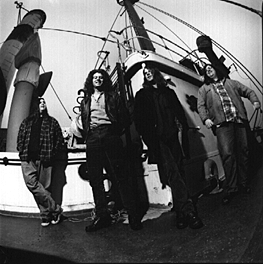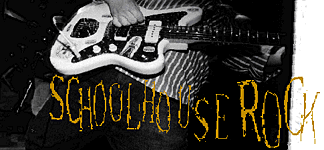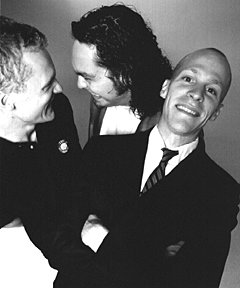


Still, as rock 'n' roll becomes a real career path, some successful musicians are now starting to think about graduate school. Dave Dederer of The Presidents of the United States went to grad school at the UW, one of the few rockers with such lofty credentials. And drummer Barrett Martin-- who has played with some of the biggest groups in the region including Mad Season, Screaming Trees and Skinyard--now says he'd like to go back to the UW for postgraduate study when his music career slows down.
"I'd love to have the time to study anthropology, or sociology, and it seems like it would be a great luxury to have the time spend your life working in that," he says. Could Eddie Vedder be next, perhaps enrolling to study political science to better handle his fight with Ticketmaster?

Yet as time marches on, the history books remind us of a time when you could see Nirvana at the HUB for a buck, when Soundgarden was playing just up the street at the Rainbow Tavern, and when KCMU was the only station worth punching in on your car radio. It was a era of innocence when the measure of success was determined by playing a show at the Scoundrel's Lair (now a pizza place, across from the Red Robin on Eastlake, and a longtime UW hangout) to 20 of your friends and fellow students.
"I remember back when Bruce Pavitt was doing his Sub Pop radio show for KCMU," recalls Mike Fuller. "I followed one of his shifts once and when I went in there he was asleep. The record that he'd been playing was stuck with the needle in the center groove and it was going `kachung, kachung.' Bruce was slumped over the control panel snoring. I don't know how long it had been that way but it could have been hours. And the funny thing was, not a single person had called up the station to complain." *
Author Charles R. Cross, '81, was editor of The Daily in 1979. Since 1985 he has been editor of The Rocket, the Northwest's rock magazine. His work has also appeared in national publications including Rolling Stone.
Best of the Northwest: Cross's Fantasy Band of
UW Alumni and Former Students
Return to
the Beginning of "Schoolhouse Rock"
Editor's
Column on UW Rock and Roll
Letters to the Editor
About "Schoolhouse Rock"
Send a letter to the editor at columns@u.washington.edu.